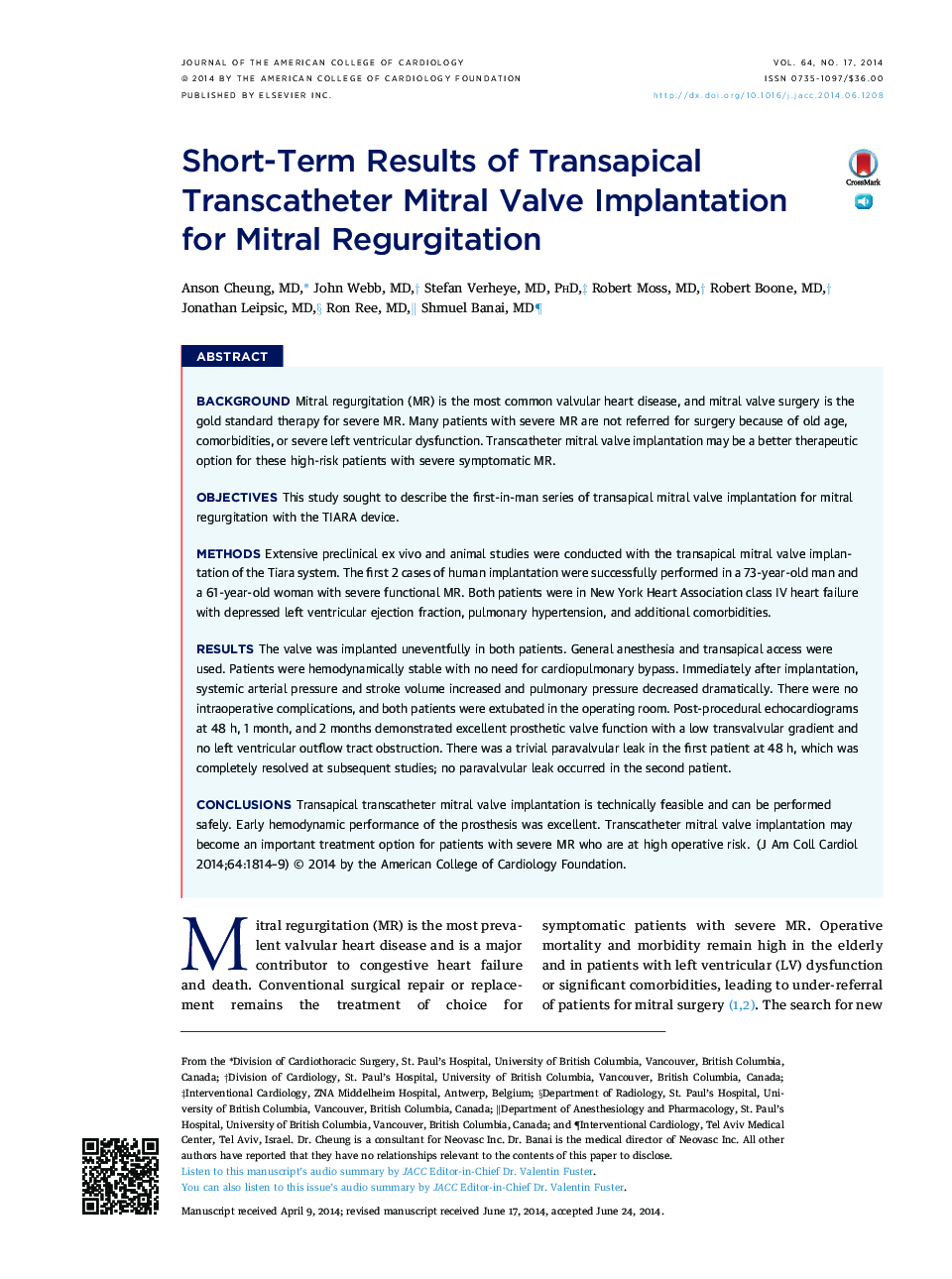| Article ID | Journal | Published Year | Pages | File Type |
|---|---|---|---|---|
| 2944184 | Journal of the American College of Cardiology | 2014 | 6 Pages |
BackgroundMitral regurgitation (MR) is the most common valvular heart disease, and mitral valve surgery is the gold standard therapy for severe MR. Many patients with severe MR are not referred for surgery because of old age, comorbidities, or severe left ventricular dysfunction. Transcatheter mitral valve implantation may be a better therapeutic option for these high-risk patients with severe symptomatic MR.ObjectivesThis study sought to describe the first-in-man series of transapical mitral valve implantation for mitral regurgitation with the TIARA device.MethodsExtensive preclinical ex vivo and animal studies were conducted with the transapical mitral valve implantation of the Tiara system. The first 2 cases of human implantation were successfully performed in a 73-year-old man and a 61-year-old woman with severe functional MR. Both patients were in New York Heart Association class IV heart failure with depressed left ventricular ejection fraction, pulmonary hypertension, and additional comorbidities.ResultsThe valve was implanted uneventfully in both patients. General anesthesia and transapical access were used. Patients were hemodynamically stable with no need for cardiopulmonary bypass. Immediately after implantation, systemic arterial pressure and stroke volume increased and pulmonary pressure decreased dramatically. There were no intraoperative complications, and both patients were extubated in the operating room. Post-procedural echocardiograms at 48 h, 1 month, and 2 months demonstrated excellent prosthetic valve function with a low transvalvular gradient and no left ventricular outflow tract obstruction. There was a trivial paravalvular leak in the first patient at 48 h, which was completely resolved at subsequent studies; no paravalvular leak occurred in the second patient.ConclusionsTransapical transcatheter mitral valve implantation is technically feasible and can be performed safely. Early hemodynamic performance of the prosthesis was excellent. Transcatheter mitral valve implantation may become an important treatment option for patients with severe MR who are at high operative risk.
